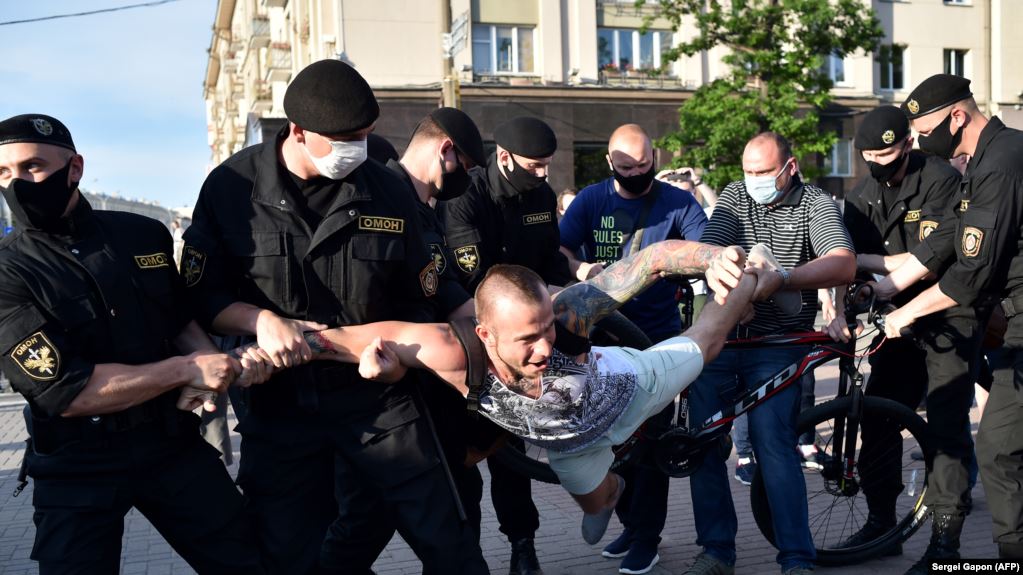The clampdown on Lukashenka’s rivals in the campaign has prompted a negative response in the West
 The situation got worse
The situation got worse

By Dzianis Melyantsou
Detentions of journalists and peaceful protesters in Belarus have prompted Western diplomats and policy makers to issue negative statements. In response, Minsk attempted to justify tough actions against Lukashenka’s rivals. Meanwhile, so far, recent developments in the campaign have had no impact on practical cooperation between Belarus and the West.
On June 19th, 2020, the European Union called for the release of prospective candidate Babaryka and his son, saying that the detention was ‘politically motivated’ and urged to ensure compliance with the rule of law principle. The statement noted that allegations of ill-treatment of those detained for participating in peaceful protests, including Pavel Sevyarynets, were “extremely alarming”.
Previously, several MEPs issued a joint statement on the situation in Belarus, stating that “Lukashenka must understand that the EU will not tolerate such acts and that they should and will have consequences, including possible targeted sanctions on groups, individuals and entities, and will have an impact on EU decisions regarding the financial assistance to Belarus, including the resilience package”.
The German Foreign Ministry expressed its concern about the situation. The embassies of the United Kingdom and the United States, following mass detentions of protesters in Belarus on June 19th, urged the Belarusian authorities to respect the rights to freedom of speech and assembly.
Minsk, in turn, reportedly in a rather crude manner, attempted to justify its position to Western diplomats. On June 18th, EU ambassadors were summoned to the Foreign Ministry, where the head of the State Control Committee, Ivan Tertel, outlined the reasons for the detention of Babaryka and members of his team. Additionally, on June 19th, Foreign Minister Makei, responded to the EU’s demand to immediately release Lukashenka’s rival, by saying that there was evidence of serious financial crimes in the ‘Belgazprombank case’.
Meanwhile, routine cooperation between Belarus and the EU and other Western states continued. On June 18th, Prime Minister Halauchenka participated in the EU Eastern Partnership Online Summit. Foreign Minister Makei had telephone conversations with the Foreign Ministers of Canada and Finland, and with the European Commissioner for Neighborhood and Enlargement.
On June 19th, it became known that Belarus borrowed USD 1.25 billion through placing Eurobonds. According to Alexander Bulgakov, Raiffeisenbank’s Executive Director for Debt Capital Markets (Russia), the placement was “among the most impressive deals on the Emerging Markets recently and, perhaps, the best deal in history for this issuer. The combination of a good market window, the correct positioning of Belarus internationally, including the systematic and consistent work to achieve the previously stated economic goals, along with the positive attitude of investors towards the risks, made Belarus the first CIS state to make an ideal placement on the capital market after the onset of the coronavirus outbreak”.
Subscribe to our newsletter




Situation in Belarus
Constitutional referendum: main consequences


 Video
Video
How to count the political prisoners: are the new criteria needed?


 Video
Video
Paternalism In Decline, Belarusian Euroscepticism, And The Influence Of Russia


 Video
Video












